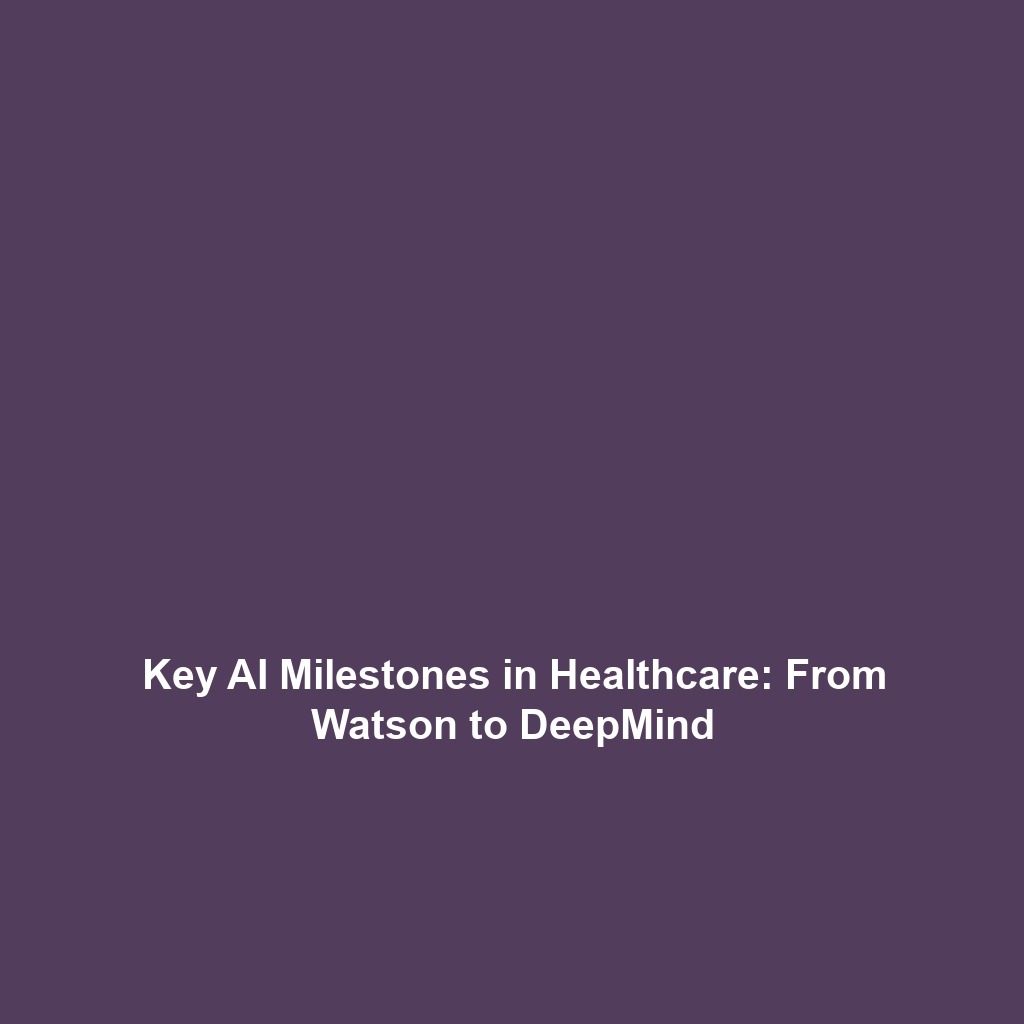Timeline of Major AI Milestones in Healthcare
Artificial Intelligence (AI) has gradually transformed the healthcare landscape, introducing revolutionary technologies that enhance diagnosis, treatment, and patient care. The timeline of major AI milestones in healthcare, including significant entities like IBM Watson and Google DeepMind, showcases profound shifts towards the integration of intelligent systems in medical practices. Understanding these milestones is crucial for grasping the current and future implications of AI in the healthcare industry.
Key Concepts in AI Milestones
The development of AI in healthcare revolves around several key concepts that mark its evolution:
- Machine Learning: Utilizing algorithms to analyze data and improve outcomes based on historical patterns.
- Natural Language Processing (NLP): Enabling machines to understand and interpret human language, which is essential for processing patient records.
- Predictive Analytics: Utilizing historical data to predict outcomes, often applied in patient risk assessments.
- Robotics: Incorporating automated systems for surgical procedures to enhance precision and reduce recovery times.
Applications and Real-World Uses
The impact of AI milestones in healthcare can be observed through various applications:
- IBM Watson: Launched in 2011, IBM Watson has been utilized for oncology treatment support, providing tailored treatment recommendations based on patient data.
- Google DeepMind: Initiatives like DeepMind Health have focused on streamlining the diagnosis of eye diseases and improving patient monitoring through advanced imaging techniques.
- Predictive Healthcare: Organizations are employing AI to predict outbreaks and patient admissions, aiding in resource allocation strategies.
Current Challenges in AI Healthcare Milestones
Despite remarkable advancements, several challenges persist in the study and application of AI in healthcare:
- Data Privacy Concerns: Protecting sensitive patient information from breaches remains a significant challenge.
- Lack of Standardization: Variability in data sources and formats can complicate AI implementations across different healthcare systems.
- Bias in Algorithms: Underrepresentation in training datasets can lead to biased AI outcomes, affecting certain patient populations.
- Regulatory Hurdles: Navigating regulations and compliance in patient care technology creates barriers for AI-integration.
Future Research and Innovations
The landscape of AI in healthcare is continuously evolving, driven by ongoing research and innovations:
- Advanced Neural Networks: Improved models are being developed for more accurate predictions and analyses in patient outcomes.
- Telehealth Integrations: AI technologies are paving the way for more efficient remote patient monitoring and virtual consultations.
- Personalized Medicine: AI is at the forefront of tailoring treatments based on an individual’s genetic makeup, promising more effective therapies.
Conclusion
The timeline of major AI milestones in healthcare, marked by key figures such as IBM Watson and Google DeepMind, has played a pivotal role in shaping the current state of AI applications in the medical field. As these technologies continue to advance, understanding their historical context and future potential is crucial for healthcare professionals and policymakers alike. To learn more about AI applications and impacts in healthcare, consider exploring related topics on our website.

Leave a Reply